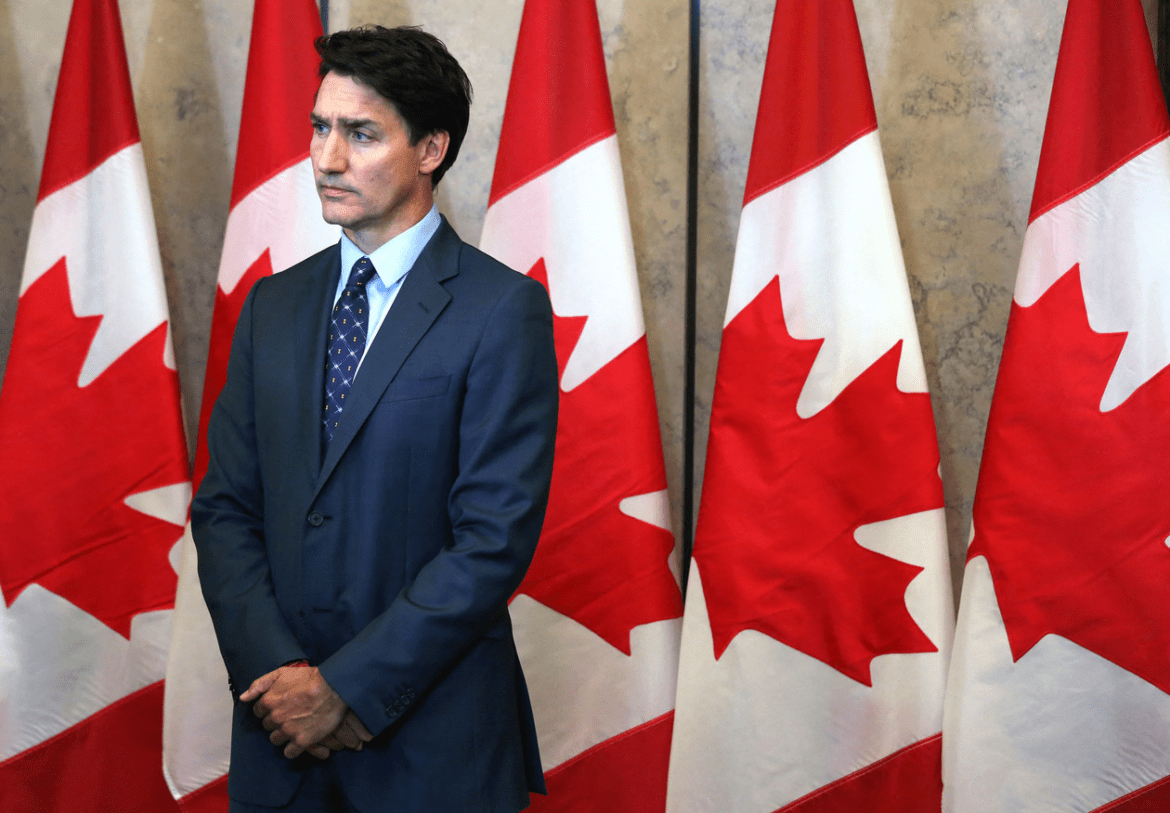AI Generated Summary
- Canadian Prime Minister Justin Trudeau has, for over a year, pointed fingers at the Government of India (GoI) for alleged interference in Canadian affairs, even as Canada itself has arrested four individuals connected to high-profile murders.
- The plight of Indian consular officers in Canada, who reportedly operate in an environment rife with extremism, underscores the seriousness of the issue.
- Is this really about external interference, or are we witnessing a tragic cycle of Sikhs killing Sikhs under the veneer of political grievances.
The simmering tensions between Canada and India have taken an international stage, with each side volleying accusations over the recent spate of violence and political maneuvering. On November 4th, during the UK-based MATV program “Gurdwara MiriPiri,” anchors dissected these dynamics in a candid, thought-provoking discussion. Their analysis sheds light on the murky waters of geopolitical blame games, community self-harm, and the misuse of diasporic platforms for narrow political ends.
The Complex Reality: Sikhs Targeting Sikhs?
Canadian Prime Minister Justin Trudeau has, for over a year, pointed fingers at the Government of India (GoI) for alleged interference in Canadian affairs, even as Canada itself has arrested four individuals connected to high-profile murders. The fact that these accused are Sikhs raises troubling questions about intra-community violence. Is this really about external interference, or are we witnessing a tragic cycle of Sikhs killing Sikhs under the veneer of political grievances?
The presenters didn’t shy away from calling out the absurdity of blaming Indian Home Minister Amit Shah for murders that Canada-based gangsters openly claim responsibility for. Take the case of Arsh Dalla, a self-proclaimed affiliate of the Khalistan Task Force, who brazenly claimed responsibility for killing Gurpreet Singh Hari Nau. If the culprits operate with impunity from Canadian soil, how credible is Trudeau’s narrative implicating Indian officials?
The Hypocrisy of Sanctuary
One of the most damning revelations from the discussion was Canada’s apparent double standard in addressing serious crimes. The UK government, for example, acts swiftly against individuals accused of heinous crimes, irrespective of political undertones. Yet Canada seems to provide a safe haven for individuals like Goldy Brar, who openly claimed responsibility for the murder of Punjabi singer Sidhu Moosewala. Ironically, when the GoI provided a list of wanted individuals, Canada conspicuously omitted Brar’s name while still blaming Lawrence Bishnoi—a clear deflection from its own responsibility.
This reluctance to act against criminal elements within its borders not only undermines Canada’s credibility but also perpetuates violence in Punjab. When Canadian soil becomes a launchpad for extremism and criminal activity, how can the Trudeau government continue to deflect blame onto India without addressing its own failings?
Political Expediency Over Justice
The anchors made a compelling point about the selective outrage surrounding murders. Ripudaman Singh Malik, a key figure in the 1985 Air India bombing trial, was killed in Canada, yet Trudeau offered little more than silence. In stark contrast, the recent uproar over Hardeep Singh Nijjar’s death reeks of political opportunism—a calculated move to appease certain vote banks ahead of elections.
The plight of Indian consular officers in Canada, who reportedly operate in an environment rife with extremism, underscores the seriousness of the issue. As the Indian Ministry of External Affairs (MEA) protested against inflammatory statements by Canadian officials, one wonders: where is Canada’s accountability in ensuring a safe and lawful environment for both its citizens and foreign diplomats?
The Deceptive Call for Mass Return
The program’s second segment tackled another perplexing issue: the call for one lakh Sikhs to return to Punjab by 2025. On the surface, it sounds like a rallying cry for solidarity, but the anchors exposed its underlying hypocrisy. While Canadian courts approve buffer zones outside Gurdwaras, ostensibly to protect Sikhs lining up for Indian visas, extremist elements simultaneously threaten those who travel to India. This duplicitous stance raises an important question: are these calls for action genuine, or are they mere “fukrapan”—empty boasts aimed at bolstering extremist narratives?
Threats against Air India and other Indian airlines further complicate matters. If India were to reciprocate with similar threats, the resulting disruption in flights would isolate Canadian Sikhs with ties to Punjab, leaving them to suffer the economic fallout. The presenters rightly highlighted the myopic nature of such tactics, which ultimately harm the very community they claim to champion.
Time for Canada to Act
The MATV discussion concluded with a strong appeal to the Canadian government: stop providing safe haven to criminals and smugglers who perpetuate violence in Punjab. By turning a blind eye to these elements, Canada is not only undermining its relationship with India but also endangering its own credibility as a nation committed to justice and rule of law.
Canada’s reluctance to confront these issues head-on reflects poorly on its governance and exposes its priorities. The time has come for Trudeau’s government to move beyond empty rhetoric and address the criminal activities flourishing under its watch. Justice, after all, should not be a pawn in a game of political expediency.
Watch the full interview here: https://www.youtube.com/watch?v= IMAODk0b-kU
The opinions expressed in this article are those of the author. They do not purport to reflect the opinions or views of Khalsa Vox or its members.




